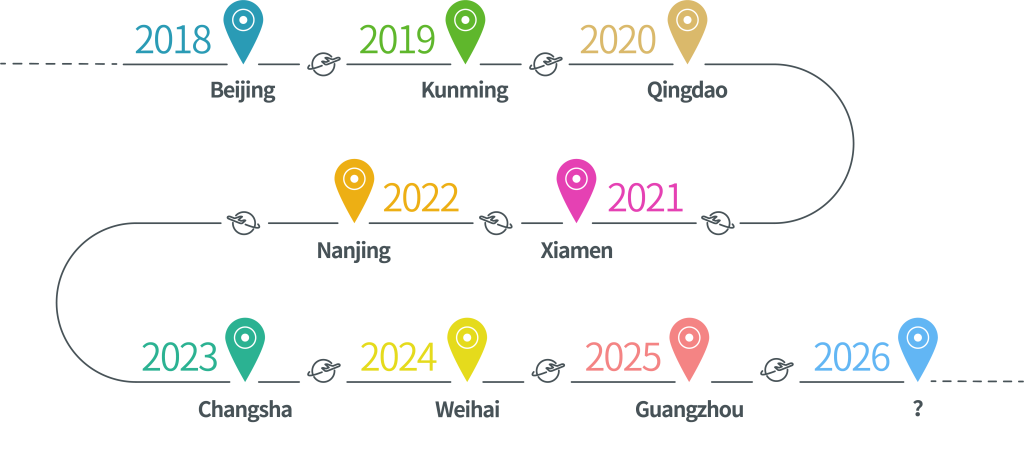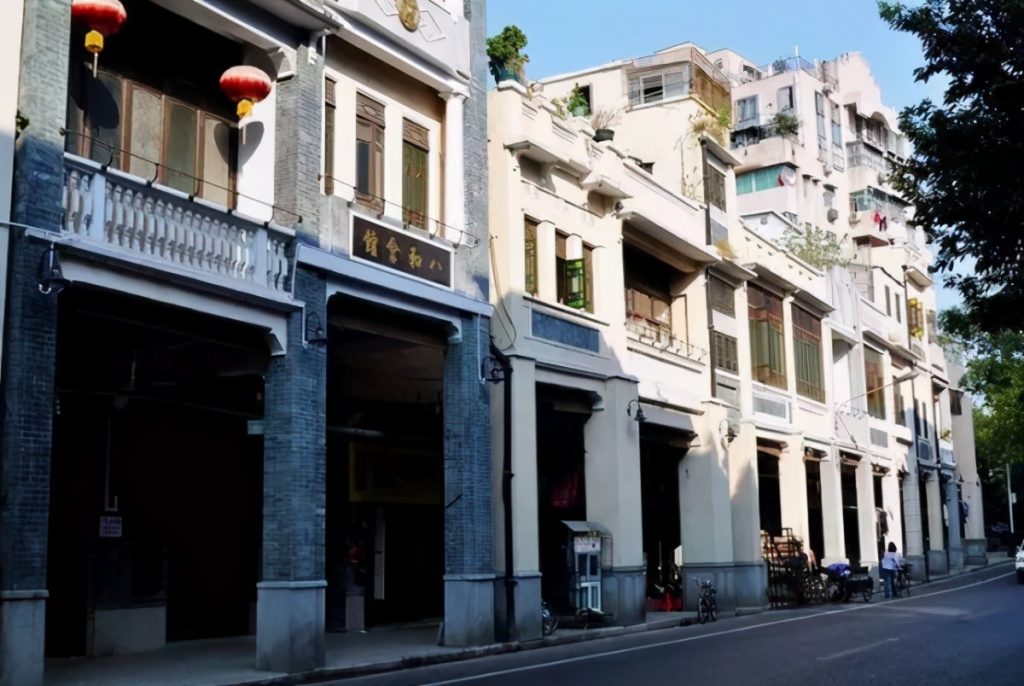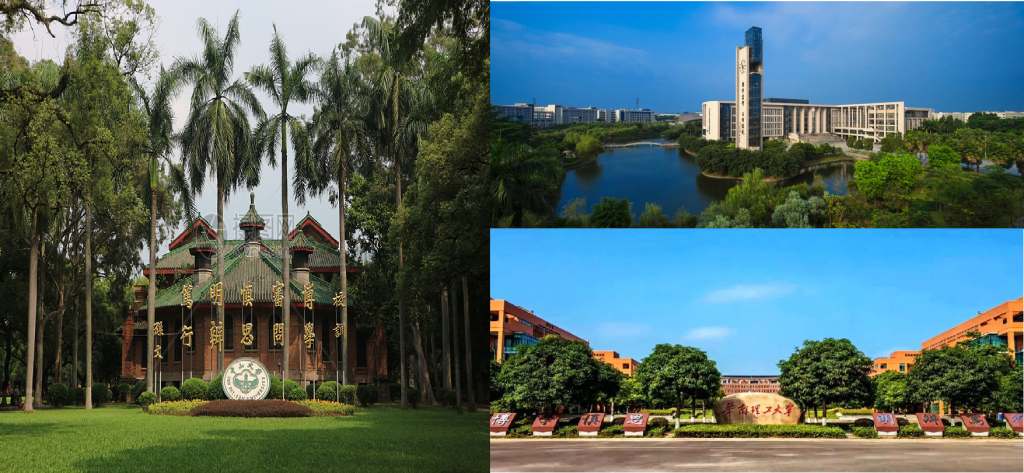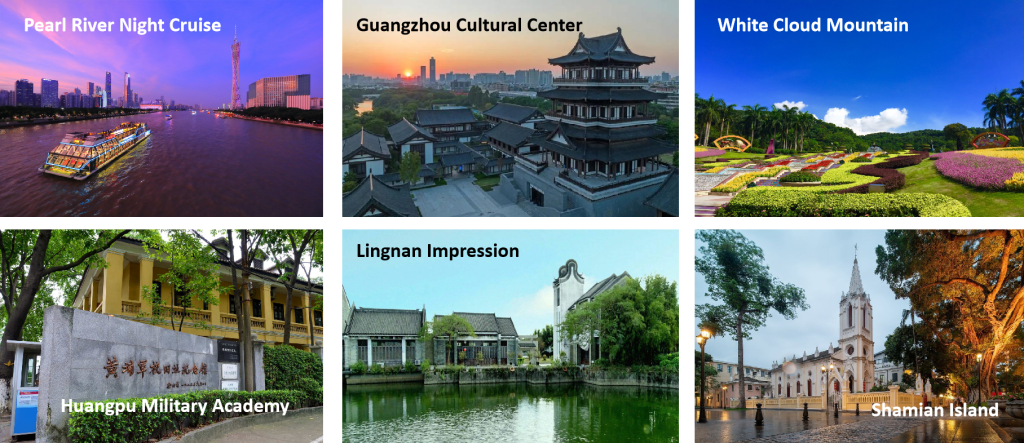
- LOGIN
- SIGN UP
The inception of the “International Conference on Climate and Energy Finance” (ICEF) dates back to 2018 and was initiated by Professor Qiang Ji and Professor Zhang Dayong. The primary goal of this conference is to propel research development within the realm of climate and energy finance in China while fostering academic exchanges on both domestic and international fronts. The organizational and coordination responsibilities for the conference rest with the ISETS Energy Finance Network and the Studies of Climate Finance, Chinese Society of Optimization, Overall Planning, and Economical Mathematics. Over the years, ICEF has been successfully hosted in various cities such as Beijing, Kunming, Qingdao, Xiamen, Nanjing, and Changsha. The conference has consistently attracted the participation of experts and scholars from over 20 countries and regions, representing more than 200 universities. Recognized in the China Association for Science and Technology’s “Important Academic Conference Guide” for four consecutive years, ICEF has played a crucial role in advancing the development of climate and energy finance disciplines and contributing to talent cultivation in China.
For more information, please refer to the conference website: http://www.cnefn.com, and enquiries can be sent to energyfinance@126.com.

We are pleased to announce that the 2025 International Conference on Climate and Energy Finance (ICEF 2025) will be held by Guangzhou University between 13-15 June , 2025 in Guangzhou City, Guangdong Province, China. The conference is an annual event organized by the ISETS Energy Finance Committee and the Society for the Studies of Climate Finance.
The first ICEF event was held in Beijing (2018) and has become the most important conference in the area of climate and energy finance. It seeks to provide a platform for international scholars to share their original research and join the debates in frontier topics. Following the successes of the past six events in Beijing (2018), Kunming (2019), Qingdao (2020), Xiamen (2021), Nanjing (2022), Changsha (2023) and Weihai (2024), we sincerely invite you to submit your high-quality original research to ICEF2025, to jointly discuss the cutting-edge areas and key issues of climate and energy finance research.
The main theme of ICEF 2025 is Energy and Climate Finance for Sustainable Development Goals (SDGs). Papers to be considered include but are not limited to the following topics:
|
|
|
|
|
|
|
|
|
|
|
|
Organizers
ISETS Energy Finance Committee
Society for the Studies of Climate Finance, Chinese Society of Optimization, Overall Planning and Economical Mathematics
Host
Guangzhou University
Co-organizers
TIERS, Southwestern University of Finance and Economics
Institutes of Science and Development, Chinese Academy of Sciences
Institute of Finance, Guangzhou University
School of Economics and Statistics, Guangzhou University
Conference chairs
Yuanhai Fu, Guangzhou University, China
Qiang Ji, Chinese Academy of Sciences, China
Dayong Zhang, Southwestern University of Finance and Economics, China
Scientific committee chairs
Xi Lu, Tsinghua University, China
Qunwei Wang, Nanjing University of Aeronautics and Astronautics, China
Yudong Wang, Nanjing University of Science and Technology, China
Yue-Jun Zhang, Hunan University, China
Organizing committee chairs
Zhenghui Li, Guangzhou University, China
Yan Xia, Chinese Academy of Sciences, China
Scientific committee
Bin Chen, Beijing Normal University, China
Ying Fan, Beihang University, China
Qiang Ji, Chinese Academy of Sciences, China
Boqiang Lin, Xiamen University, China
Xunpeng Shi, University of Technology Sydney, Australia
Bin Su, National University of Singapore, Singapore
Shouyang Wang, Chinese Academy of Sciences, China
Zhaohua Wang, Beijing Institute of Technology, China
Jian Yang, University of Colorado, USA
Dayong Zhang, Southwestern University of Finance and Economics, China
Zhongxiang Zhang, Tianjin University, China
Peng Zhou, China University of Petroleum, China
Ali M. Kutan, Southern Illinois University Edwardsville, USA
Aviral Kumar Tiwari, Indian Institute of Management Bodh Gaya, India
Brain Lucey, Trinity College Dublin, Ireland
Duc Khuong Nguyen, Léonard de Vinci Pôle Universitaire, France
Elie Bouri, Lebanese American University, Lebanon
Lutz Kilian, Federal Reserve Bank of Dallas, United States
Muhammad Ali Nasir, University of Leeds, UK
Rangan Gupta, University of Pretoria, South Africa
Ronald D. Ripple, R.D. Ripple & Associates, USA
Samuel A. Vigne, Luiss Business School, Italy
Shunsuke Managi, Kyushu University, Japan
Stéphane Goutte, University Paris-Saclay, France
Ugur Soytas, Technical University of Denmark, Denmark
Organizing committee
Shuanglian Chen, Guangzhou University, China
Xiaowen Chen, Guangzhou University, China
Guanghui Chen, Guangzhou University, China
Ziqing Du, Guangzhou University, China
Jiangbo Geng, Zhongnan University of Economics and Law, China
Kun Guo, University of Chinese Academy of Sciences, China
Jiajia He, Guangzhou University, China
Zhehao Huang, Guangzhou University, China
Shuaishuai Jia, Guangzhou University, China
Tinghui Li, Guangzhou University, China
Gaoke Liao, Guangzhou University, China
Jingyu Liu, Shanghai Jiao Tong University, China
Yinpeng Liu, Beihang University, China
Bin Mo, Guangzhou University, China
Yaya Su, Hunan University of Technology and Business, China
Xiaolei Sun, Chinese Academy of Sciences, China
Shasha Tao, Guangzhou University, China
Mengxin Wang, Guangzhou University, China
Jie Wu, Shanghai University of Finance and Economics, China
Mian Yang, Wuhan University, China
Wenli Zou, Guangzhou University, China
Keynote Speakers

Zacharias Sautner
University of Zurich, Switzerland
Associate Editor at the Review of Financial Studies, Management Science, Journal of Financial and Quantitative Analysis, Journal of Banking & Finance, and Journal of Corporate Finance.

William Megginson
The University of Oklahoma, USA
Professor & Price Chair in Finance, George Lynn Cross Research Professor and Finance Area Editor at the Journal of International Business Studies

Douglas Cumming
Florida Atlantic University, USA
Managing Editor-in-Chief of the Review of Corporate Finance and Associate Editor at the Journal of Banking & Finance.

CHAO Qingchen
Director general of National Climate Center,China Meteorological Administration
Chair of the Standing Committee on Climate Services, World Meteorological Organization, Executive Member of the Chinese Meteorological Society, Member of the Expert Committee on the National Commission for Disaster Reduction and etc.
Submission process
An extended abstract is needed and we encourage authors to submit full papers. Please go to the conference website: http://www.cnefn.com/icef/icef-2025 and use the online submission portal to submit your paper.
Publication opportunities
Papers submitted to the conference have the opportunity to publish in one of the special issues. Qualified papers will be invited to submit to the suitable journal based on recommendations by the guest editors. Please note that the recommendation does not guarantee final publication, all regular requirements and reviewing process set by journals have to be satisfied.
List of special issue journals
- International Review of Financial Analysis (SSCI: JCR 1, ABS 3, ABDC: A)
- International Review of Economics and Finance (SSCI: JCR 1, ABS 2, ABDC: A)
- Finance Research Letters (SSCI: JCR 1, ABS 2, ABDC: A)
- Journal of Climate Finance
Important dates
- Abstract submission deadline: April 20, 2025
- Notification of Acceptance: April 30, 2025
- Full paper submission deadline (for special issues): May 10, 2025
- Registration deadline: May 20, 2025
- Conference: June 13-15, 2025 (Registration: June 13)
Conference Venue
Hilton Foshan Hotel
Address: No. 127 North of Lingnan Avenue,Shancheng District,Foshan,Guangdong, China

City Information
Location
Guangzhou, the capital city of Guangdong Province in southern China, is strategically located on the Pearl River Delta. It lies in the southern part of China, about 120 kilometers (75 miles) north of the South China Sea. The city is positioned approximately midway between Hong Kong and the Yangtze River Delta, making it a key transportation and economic hub in the region.
Climate and Environment
Guangzhou experiences a humid subtropical climate, characterized by hot, humid summers and mild, relatively dry winters. Summer temperatures typically range from 25°C to 35°C (77°F to 95°F), with high humidity often making it feel hotter. Winters are mild, with temperatures usually ranging from 10°C to 20°C (50°F to 68°F). The city receives significant rainfall, particularly from April to September, with annual precipitation averaging around 1,800 millimeters (70 inches).
The environment in Guangzhou includes a mix of urban and natural features. The city is surrounded by lush greenery and several rivers, including the Pearl River, which enhances its scenic beauty. Urban areas are densely developed, with a blend of modern skyscrapers and traditional architecture. The subtropical climate supports a diverse range of vegetation, contributing to the city’s vibrant parks and green spaces.

The pleasant environmental and climatic conditions of Guangzhou
History and Culture

Historical buildings in Guangzhou
Guangzhou, historically known as Canton, is one of China’s oldest cities with a history spanning over 2,200 years. Founded during the Qin Dynasty, it became a major trade hub during the Tang and Song Dynasties. The city was pivotal in the maritime Silk Road, connecting China to global trade networks.
Culturally, Guangzhou is renowned for its rich heritage and vibrant traditions. It is famous for Cantonese cuisine, including dim sum and roast pork, and Cantonese opera, a classical art form. The city also hosts the Canton Fair, China’s oldest and largest trade fair, reflecting its ongoing economic significance. Guangzhou’s architecture features a blend of ancient temples, colonial-era buildings, and modern skyscrapers, symbolizing its historical evolution and cultural diversity.
Economy
As of recent estimates, Guangzhou has a population of approximately 15 million people, making it one of China’s most populous cities. The population is diverse, comprising a mix of local residents and migrants from other parts of China, reflecting the city’s status as a major economic and cultural hub.
In terms of economic performance, Guangzhou boasts a strong Gross Domestic Product (GDP). As of the latest figures, the city’s GDP is around 2.5 trillion RMB (approximately 360 billion USD). This substantial economic output places Guangzhou among the top cities in China in terms of economic scale. The city’s economy benefits from its thriving manufacturing sector, extensive trade activities, and growing service industries, contributing to its significant GDP. Guangzhou continues to experience economic growth, driven by its strategic location, robust industrial base, and dynamic business environment.

Booming night economy in Guangzhou
Science Research & Education
Guangzhou is home to numerous research institutions and high-tech enterprises. Notable among them is the Guangzhou International Bio-Island, which focuses on biotechnology and life sciences. The city also hosts several research institutes affiliated with the Sun Yat-sen University, South China University of Technology, Guangzhou University and Chinese Academy of Sciences, including the Guangzhou Institute of Geochemistry and the Guangzhou Institute of Energy Conversion. These institutions are involved in cutting-edge research in fields such as environmental science, energy, and materials science.

China’s first-class universities in Guangzhou
Tourist Attractions & Culinary Specialties
Guangzhou, a vibrant metropolis in southern China, boasts a rich array of tourist attractions and culinary specialties. Among its notable landmarks are the Canton Tower, which offers stunning city views; the Chen Clan Ancestral Hall, showcasing traditional Cantonese architecture; and Shamian Island, known for its colonial charm. Yuexiu Park, with the Five Rams Sculpture and Zhenhai Tower, provides a scenic retreat, while the Guangdong Museum highlights the region’s history and culture. Culinary enthusiasts will delight in Guangzhou’s renowned Cantonese cuisine, including dim sum with its variety of small, flavorful dishes; roast pork with its crispy skin; wonton noodles in a savory broth; char siu, or sweet barbecue pork; and fresh Cantonese seafood. These attractions and specialties make Guangzhou a compelling destination for travelers seeking both cultural enrichment and culinary enjoyment.

Must-see Guangzhou Sights
Registration fee
International participant:
Regular participant: $400
Student: $250
Chinese participant:
Regular participant: 2600 RMB
Student: 1600 RMB
Note: All the international participants who attend online sessions can enjoy the 50% fee discount.
(1) REGISTRATION FEES are payable in advance, no onsite registration is allowed.
(2) To include the paper in the conference program and the conference proceedings, at least one of the authors has to register before the registration deadline. If multiple submissions are accepted, then a different author will be required to pay the registration fee and present each paper. Otherwise, authors will be contacted and asked to drop one or more paper(s) for presentation.
(3) Full time student (not including post doctor) MUST provide proof of full time status (copy of valid student ID card or letter from affiliated institution head or program director).
1. Foreign participants:
(1) Payment by Bank Transfer
Bank: National Australia Bank
BSB (bank, state, branch): 082-356
BIC/SWIFT code: NATAAU3303M
Account number: 406628981
Beneficiary name and address: International Society for Energy Transition Studies, 5 Barraba Place, Bella Vista, NSW 2153, Australia
or (2) Online payment by paypal at:
https://paypal.me/AusEnergyTranInst?locale.x=en_AU
Please quote the attendee name+EnergyFinance as the Remittance Information when make payment.
Please Login in the system by your account and fill in the registration form and upload the photographed or scanned copy of the remittance.
2. 国内参会者(国内参会者请务必通过以下账号汇款)
支付方式1:二维码支付(推荐)
注:2025-3-1开放缴费,通过二维码支付的参会者不需要在本会议系统中上传注册表
支付方式2:银行转账
账号名称: 中国优选法统筹法与经济数学研究会
开户银行: 中国工商银行海淀西区支行
账 号: 0200004509089143934
汇款请备注留言: 能源金融会议+姓名
请使用个人账号登陆会议系统,填写参会注册表,并将汇款凭证上传
需要开发票的参会人员,请将发票抬头,金额,单位税号等详细信息填写至会议系统内的注册表
Cancellations Policy
No refund can be made from the original registration fee once the registration fee is confirmed. There are no exceptions to this policy. Should you be unable to attend, however, a substitution may be made to transfer your fully paid registration to another member of your organization at any time up to June 5, 2025.
